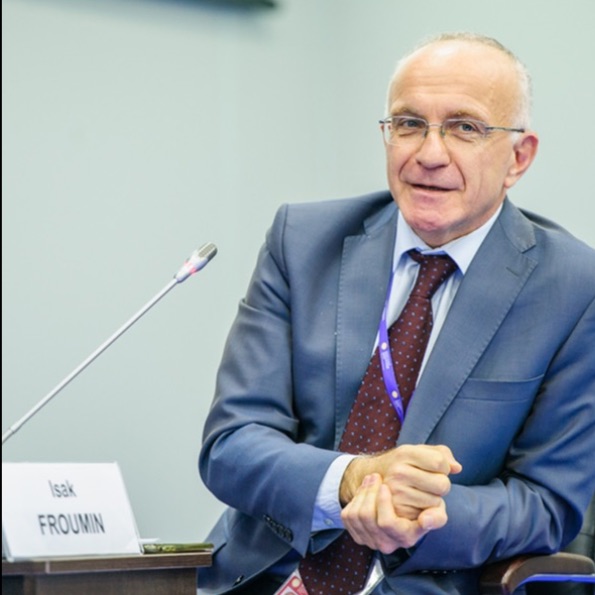Position: Home> Media Center > Industry News

Prof. Isak Froumin is the Head of Institute of Education at HSE University (National Research University Higher School of Economics), and is responsible for monitoring operations of Strategic Development Programme and structural divisions of international block, and leading of HSE educational expert analytics. He was previously the Leading Expert at Education at World Bank (Moscow Branch), Adviser to Vice-President of Skolkovo Foundation. He also holds editorships in many influential journals and publications, such as the Deputy Editor-in-chief, Вопросы образования (Educational Studies Moscow).
There are three different roles of faculty as I understand and observe. One of that is the use of these resources, as users. They have the challenge to master the technological tools. It is a big job. I think we have to appreciate that. But also, second, as content developers. there is a small group of teachers that were willing to develop the new courses and to record them for Russian national platform or for international platforms.
Third, as curious researchers. In fact, yesterday we had a discussion on what could be the research agenda around this operation and you just gave me a hint that one of the questions would be “how would you define readiness for online learning”. I don’t know the answer. Again, I think it’s not only about technology. It’s a kind of self-discipline. I can give you an example that we discussed yesterday among my colleagues. One of the professors said that the eye contact on the computer is a mess. She said she would need new ways to manage information and tools. And that’s very interesting. So I think in the academic world, the teaching and learning for teachers and students will very much depend on our ability to choose and use the right tools.
As for the high-quality online teaching and learning, the obvious answer would be that it can provide the same quality or intensity of human interaction as face-to-face interaction. But I think it’s really not a right answer. I think the high-quality online learning would help us to indeed have learner-focused education. You know the difference between teaching and learning. It’s interesting that in the Russian language the word for “learning” is under rare use. We frequently use “teaching” in the assumption that it includes learning. So we don’t pay sufficient attention to the process where student is the main driving force.
Indeed, it happens in Russia, but it’s more about actions than real changes. So I would say that the high-quality online education would be an education where learning really plays a central role, where the learners receive more feedback, not just from professor, but also through different tools and perspectives. So that’s my immediate thought. But again, I think it would be a good subject for further research and there could be global collaborations too.
Obviously, we will have a hybrid approach and combining online with offline. Now with this great move, we observe what we are losing. This online arrangement is not soul-to-soul interaction, but people are social animals and we need in-person interactions. And for young people, universities are the place for interactions.
We observe now when we shift to fully online education, we also shift the focus to information learning as the essentials, i.e. the transmission of key knowledge. When we are all physically together in a classroom or on campus, we don't just learn through formal lectures, because we learn from all the micro interactions with each other too. Again, it’s a hypothesis that should go and test. But one thing most faculty felt is that online teaching is a good way to transfer knowledge. So this part will possibly go more and more online. But the part of group projects, discussions or socialization will stay on campus with universities. And we’ll just have to learn how to do it better.
 京公网安备 110402430053 号
京公网安备 110402430053 号